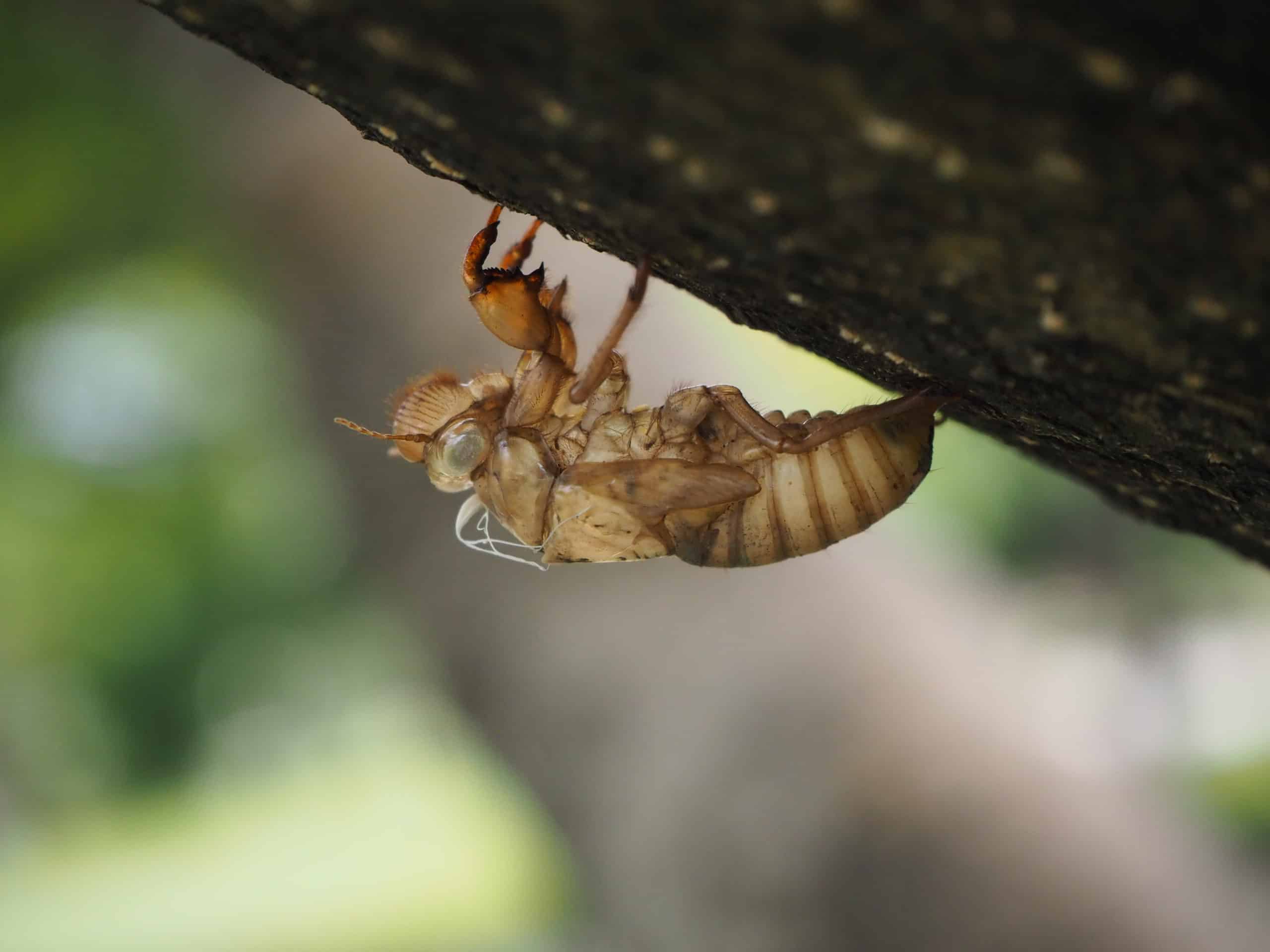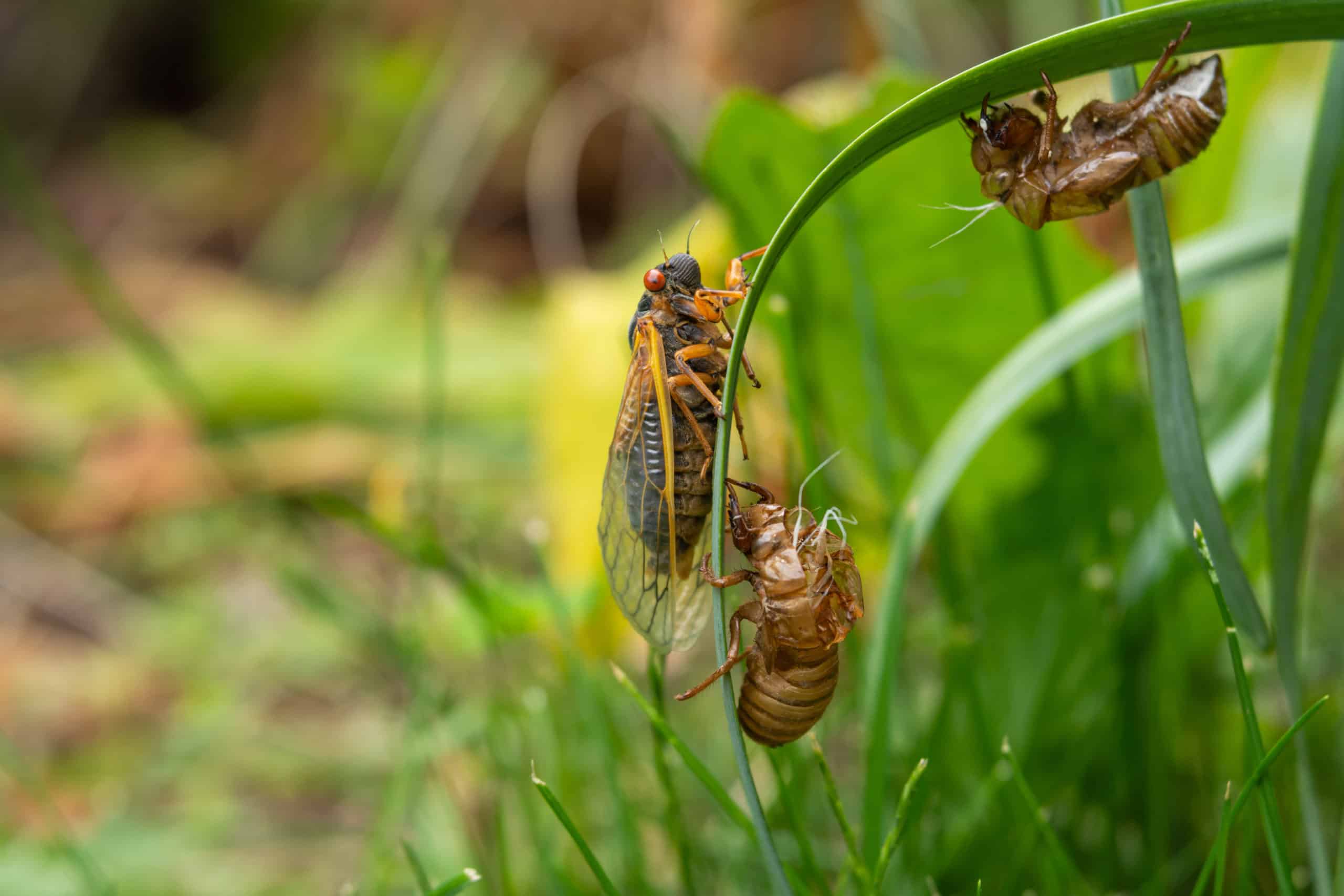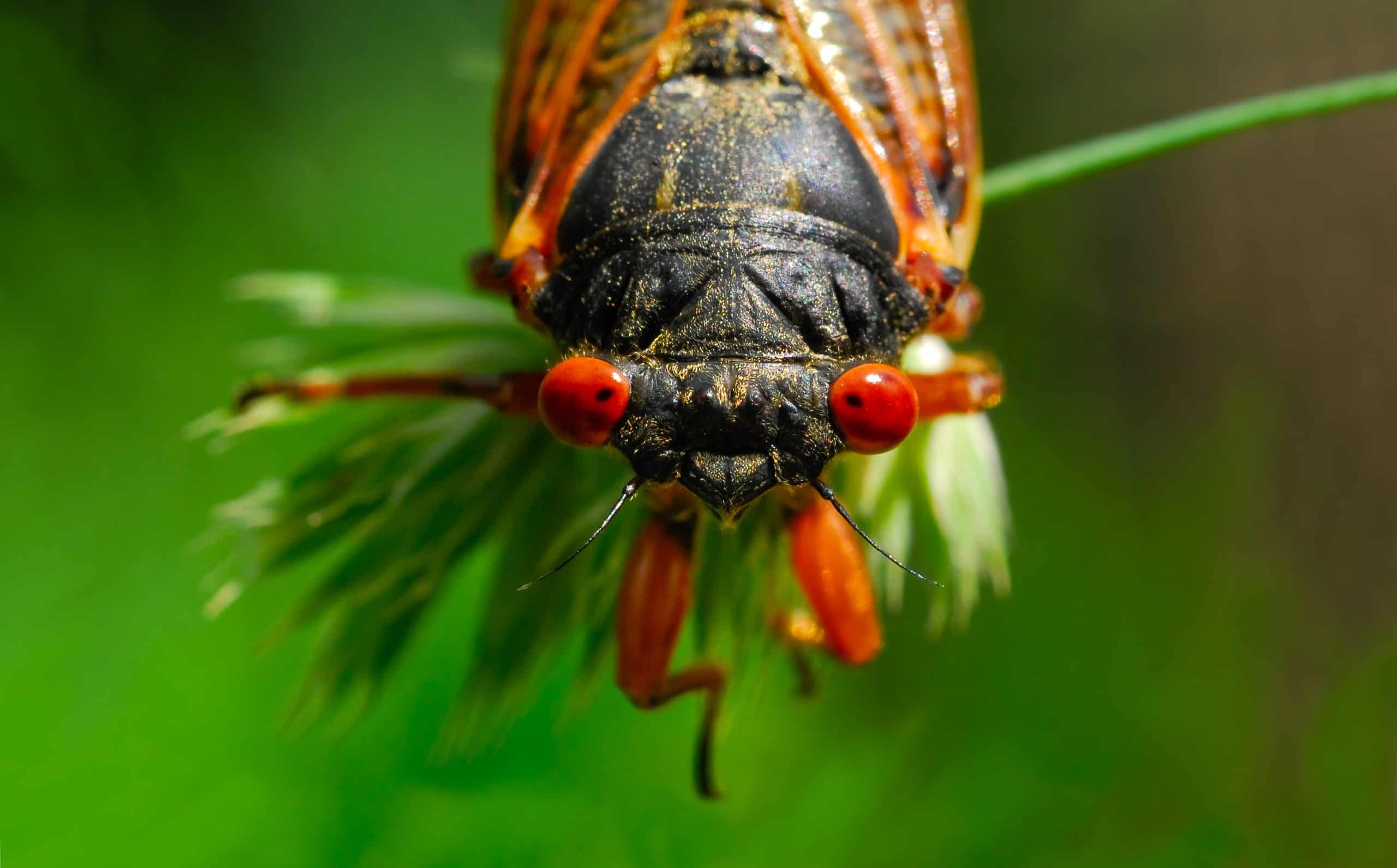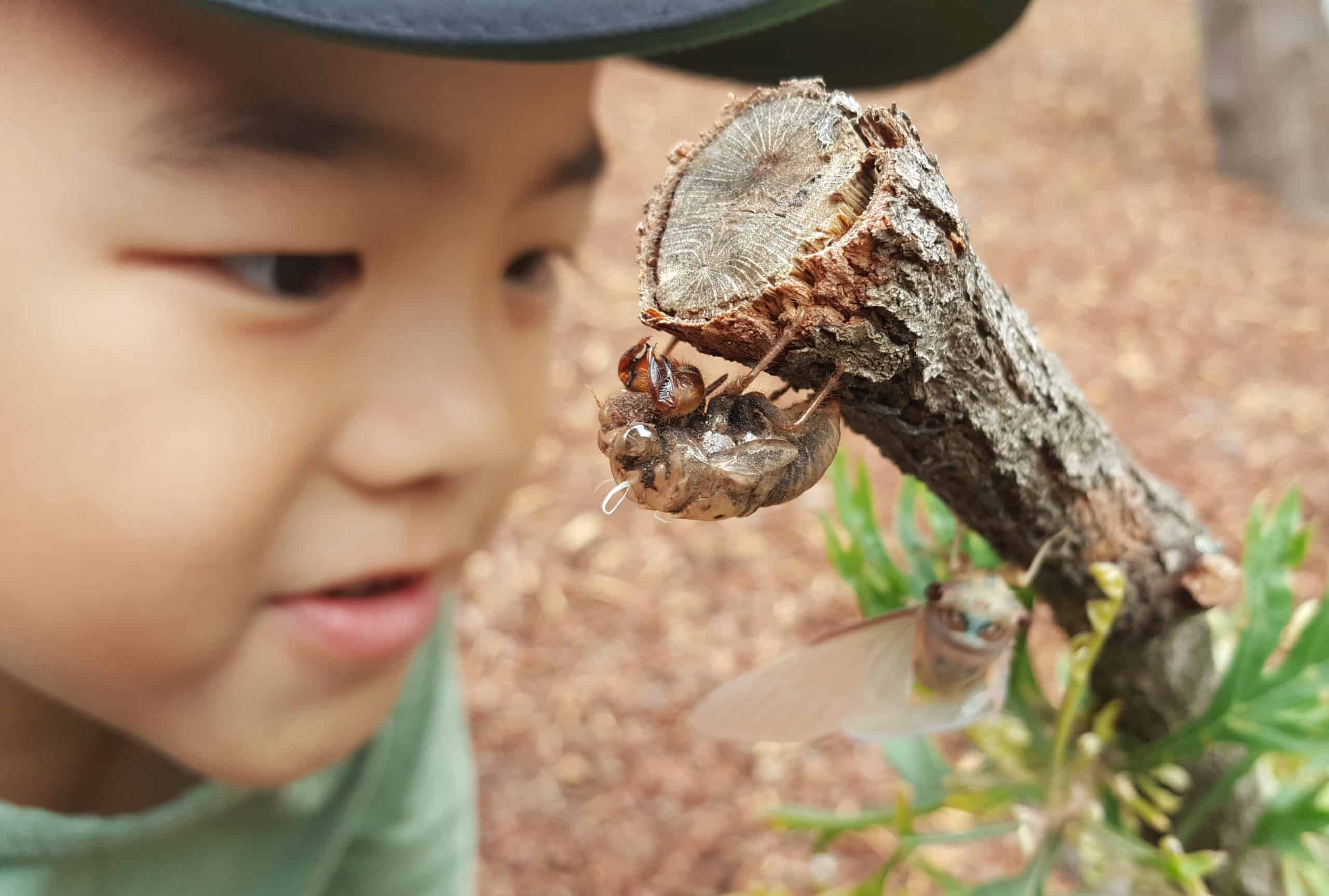The Song of the Season
The Song of the Season
A Mysterious Summertime Sound
You finally break out those shorts and tank tops, and head outside to soak in the warmth of the sun, but this year… something’s different. A loud thrumming, chirping noise permeates through the air in a surround sound-like fashion pulling your attention momentarily away from your summer serenity. This is the time of the cicadas – and their song, is the song of the season.

The Season of the Little Musicians
Last year, a brood of cicadas known as brood IX emerged in massive numbers and, if you lived in one of the “hot-spots” during that time, their presence was utterly unavoidable. Luckily, by around mid-July the brood had all but disappeared for the season, giving us a reprieve from the bugs for a short while.
This year during cicada season, another brood known as brood X is upon us. Thankfully, however, their population is somewhat sparse in Virginia as the brood is spread out across a number of states including: Delaware, Georgia, Illinois, Indiana, Kentucky, Maryland, Michigan, New Jersey, New York, North Carolina, Ohio, Pennsylvania, and Tennessee. In addition to being host to some of brood X, we also have some annual Virginia cicadas emerging. So, while the onslaught of these melodic bugs may not be as drastic as it was last year in 2020, we are still getting our fair share of serenading.

How do Cicadas Make Their Sounds?
Cicadas possess the ability to produce a shockingly loud buzzing song. At the loudest, a single cicada’s chirp can reach up to 108 decibels – for perspective, this is the same amount of decibels as the sound of a jet taking off at 305 meters and can cause serious hearing damage if held up to your ear for even a mere minute or two. Luckily, most cicadas are not this loud, but their sounds still penetrate through the air with ease.
The songs of cicadas have been described as chirping, thrumming, or even electrical noises. Interestingly, while it may seem like it’s just one peculiar chirping noise, it is, in fact a little duet of both male and female cicadas performing their mating calls. Male cicadas have a drum-shaped structure on their abdomens called ‘tymbals,’ which reverberate in order to make their half of the song. In response, the females rapidly flick their wings together, completing the high-pitched duet.

Loud, But Harmless
While cicadas may be loud, they thankfully don’t pose any threat to people or pets. These vocal insects don’t sting, bite, nor do they want to inhabit your home and, as such, they are not considered pests. For many, the songs of cicadas can actually be a welcome addition to the sounds of summer, but if they bother you, no need to worry; these pests leave of their own accord in just a few months to go into hibernation.

Citations
Architectural (2021) IAC Acoustics. Available at: https://www.iacacoustics.com/blog-full/comparative-examples-of-noise-levels.html (Accessed: June 10, 2021).
Brood X cicadas map: Where you will find them in 2021 (2021) The Enquirer. USA Today Network. Available at: https://www.cincinnati.com/story/news/2021/05/06/brood-x-cicadas-map-what-states/4946803001/ (Accessed: May 18, 2021).
Brown, W. (2014) Insect of the Month: Cicadas, Texas A&M University’s College of Agriculture and Life Sciences – Department of Entomology. Available at: https://entomology.tamu.edu/2014/06/24/insect-of-the-month-cicadas/ (Accessed: October 2020).
Cicada (2017) Amateur Entomologists’ Society . Available at: https://www.amentsoc.org/insects/glossary/terms/cicada (Accessed: October 2020).
How do Cicadas Make Sound? (2017) Peggy Notebaert Nature Museum. Chicago Academy of Sciences. Available at: https://naturemuseum.org/2017/08/how-do-cicadas-make-sound/ (Accessed: June 10, 2021).
Levy, M. (2020) Cicadas Are Delightful Weirdos You Should Learn to Love, Smithsonian Magazine. The Smithsonian Institute. Available at: https://www.smithsonianmag.com/science-nature/what-are-cicadas-180975009/ (Accessed: October 2020).
Myatt, K. and Klein-Davis, S. (2021) 17-year cicadas: Not our problem this time, Roanoke Times. Available at: https://roanoke.com/news/local/17-year-cicadas-not-our-problem-this-time/article_8ef94bb0-b4bb-11eb-bcdc-1374a7b824c5.html (Accessed: May 18, 2021).
National Geographic Staff (2019) Cicadas, National Geographic. Available at: https://www.nationalgeographic.com/animals/invertebrates/group/cicadas/ (Accessed: October 2020).
Orchard Cicada (no date) Washington State University Department of Entomology. Available at: http://entomology.wsu.edu/outreach/bug-info/cicada/ (Accessed: October 2020).
Rhodes, D. (2021) 17-Year Cicadas Will Make This Summer Extra Loud For Illinois – But Chicago Will Be Spared For Now, Block Club Chicago. Available at: https://blockclubchicago.org/2021/03/02/17-year-cicadas-will-make-this-summer-extra-loud-for-illinois-but-chicago-will-be-spared-for-now/ (Accessed: May 19, 2021).
Rogers, J. (2020) Get Set for the Return of Cicadas and Their ‘Alien-like Wail’ After 17 Years Underground, Fox News. Available at: https://www.foxnews.com/science/return-cicadas-alien-like-wail-after-17-years-underground (Accessed: July 2020).
Sargent, C. (2020) Here Come the Cicadas! At Least for Some of Us, NC State University College of Agriculture and Life Sciences. Available at: https://cals.ncsu.edu/news/here-come-the-cicadas-at-least-for-some-of-us/ (Accessed: October 2020).

